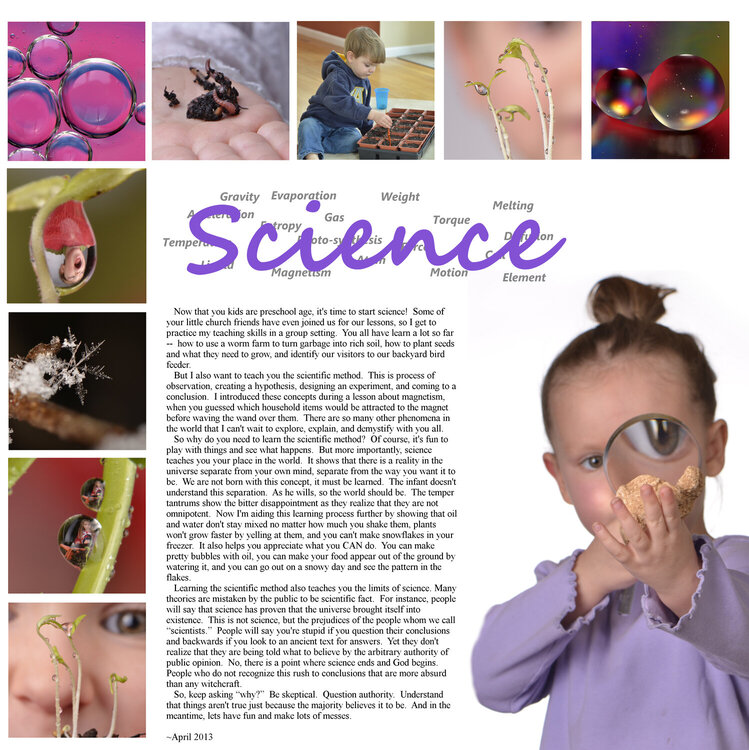

 Give a Cheer
Give a Cheer
Journaling: Now that you kids are preschool age, it's time to start science! Some of your little church friends have even joined us for our lessons, so I get to practice my teaching skills in a group setting. You all have learn a lot so far -- how to use a worm farm to turn garbage into rich soil, how to plant seeds and what they need to grow, and identify our visitors to our backyard bird feeder.
But I also want to teach you the scientific method. This is process of observation, creating a hypothesis, designing an experiment, and coming to a conclusion. I introduced these concepts during a lesson about magnetism, when you guessed which household items would be attracted to the magnet before waving the wand over them. There are so many other phenomena in the world that I can't wait to explore, explain, and demystify with you all.
So why do you need to learn the scientific method? Of course, it's fun to play with things and see what happens. But more importantly, science teaches you your place in the world. It shows that there is a reality in the universe separate from your own mind, separate from the way you want it to be. We are not born with this concept, it must be learned. The infant doesn't understand this separation. As he wills, so the world should be. The temper tantrums show the bitter disappointment as they realize that they are not omnipotent. Now I'm aiding this learning process further by showing that oil and water don't stay mixed no matter how much you shake them, plants won't grow faster by yelling at them, and you can't make snowflakes in your freezer. It also helps you appreciate what you CAN do. You can make pretty bubbles with oil, you can make your food appear out of the ground by watering it, and you can go out on a snowy day and see the pattern in the flakes.
Learning the scientific method also teaches you the limits of science. Many theories are mistaken by the public to be scientific fact. For instance, people will say that science has proven that the universe brought itself into existence. This is not science, but the prejudices of the people whom we call “scientists.” People will say you're stupid if you question their conclusions and backwards if you look to an ancient text for answers. Yet they don't realize that they are being told what to believe by the arbitrary authority of public opinion. No, there is a point where science ends and God begins. People who do not recognize this rush to conclusions that are more absurd than any witchcraft.
So, keep asking “why?” Be skeptical. Question authority. Understand that things aren't true just because the majority believes it to be. And in the meantime, lets have fun and make lots of messes.
No products have been added to this project.
Thanks for spreading positivity!
April 23, 2013
April 15, 2013